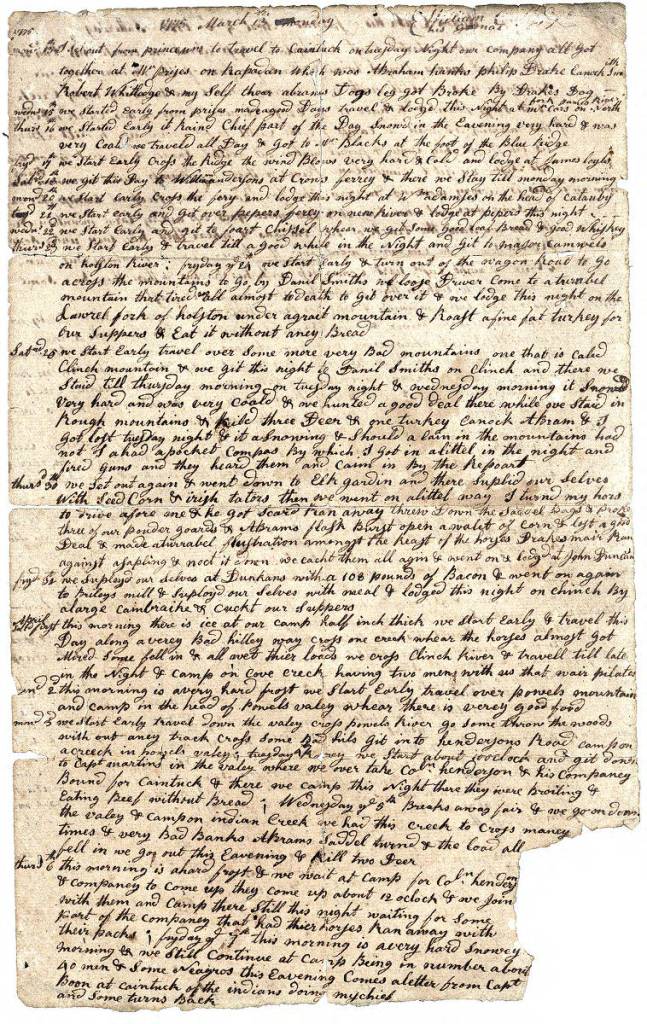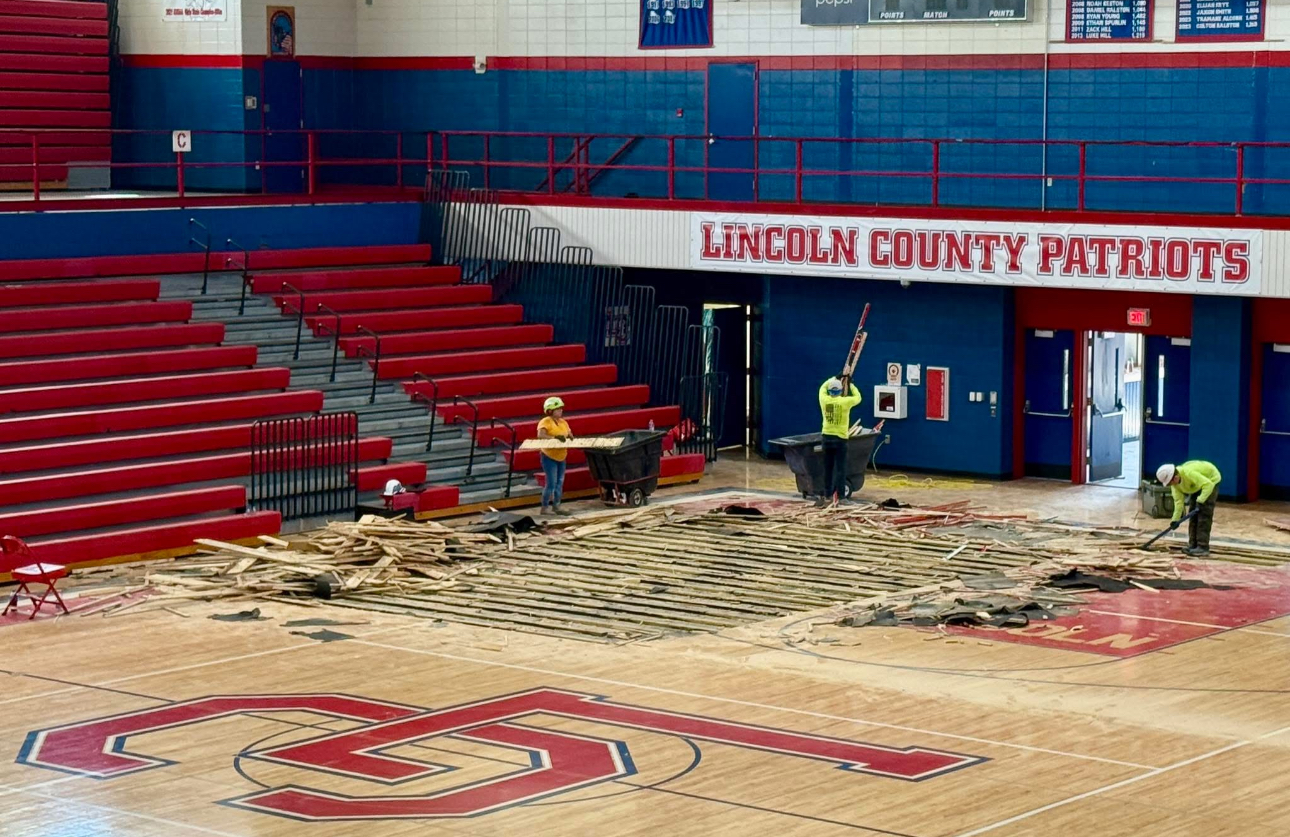William Calk kept a diary in 1775
Published 12:00 pm Monday, June 24, 2024

- A page from Calk's journal. (Kentucky Historical Society photo)
|
Getting your Trinity Audio player ready...
|
By Jadon Gibson, Contributing Writer
William Calk was an early pioneer into what would become Kentucky. While a young man, his father James Calk of Prince William County in Virginia paid a schoolmaster ten shillings and one quart of brandy for a year’s schooling for his son.
Although the family was well to do with a large plantation, many slaves and other possessions while William Calk was a young man, he became restless and gave in to his urge to explore the Kentucky wilderness.
He kept notes on the fly-leafs of his arithmetic book. I’ve left the spelling largely as Calk wrote it during his journey.
“1775 Mon 13th – I set out from Prince William County to travel to caintuck. Thursday 16th We started early it rained chief part of the day….Wednesday 22nd – We start early and git to Fort Chissel whar we git some good loaf bread and good whiskey….
When their travel resumed one of their number wandered into the wilderness perhaps to relieve himself and became lost. The other members of the party waited for him but he failed to return. They fired their guns and beat about the thicket while yelling his name but he had disappeared.
“April Saturday 1st – This morning there is ice at our camp half inch thick. We start early and travel this day along a very bad hilley way…we cross Clinch river and travel till late in the night and camp on Cove creek having two men with us that wair pilates (guides)…
“Tuesday 4th – Raney. We start about 10 oclock and git down to Capt Martins’ in the valley where we overtake Col. Henderson and his Company bound for caintuck. There they were broiling and eating beef without bread….
“Tuesday 11th – this is a lowry morning and like for rain but we all agree to start early and cross Cumberland River (at what is now Pineville, Kentucky) and travel down it about 10 miles through some turrabel cain-brakes…it is a very raney eavening. We take up camp near Richland Creek. They kill a beef. Mr. Drake bakes bread without washing his hands. We keep sentry this night for fear of the Indians…”
Their provisions were gone and they were weary from travel through the canebrakes and wilderness yet their travels continued. By the way, Kentucky received its name from the numerous canebrakes, large patches of plant from the cane family that grew very thick. Many pioneers and longhunters referred to the harassing nature of cane, from which Kentucky is named.
“Wednesday 19th – Smart frost this morning. They kill 3 bufelos about 11 o’clock. We come to where the Indians fired on Boones company…
“Thursday 20th – This morning is clear and cool. We start early to git down to caintuck to Boons fort…”
Many followed Boone’s Path while another group, including Colonel John Donelson and his daughter Rachel, took a circuitous route by water, contested by Indians much of the way. Donelson and James Robertson founded the city of Nashville and Rachel later became the wife of Old Hickory, Andrew Jackson.
Boone’s Trace was the westward route most took, leading up through the Smoky Mountains and along the Watauga River to its confluence with the Clinch River. Here it forked with one branch leading to Knoxville and westward through Tennessee.
The other fork abruptly turned northward through Cumberland Gap into Kentucky, turning westward and then southwesterly to Nashville. The two forks reunited there “where about 1000 inhabitants lived, housed in cabins built of cedar logs, 16 by 20 feet most common, with stone or mud chimneys.”
The clay chinking between the logs were punched out during summer to offer ventilation and then filled back in during late fall to keep out the cold of the coming winter.
Those were the times that were…. during the settling of this part of America. We are truly blessed. We are living today because each and every one of our grandparents survived long enough to conceive and give birth to the next generation until our lucky (blessed) day arrived.
Jadon Gibson is a widely read Appalachian writer. His stories are both historic and nostalgic in nature. Thanks to Lincoln Memorial University, Alice Lloyd College and the Museum of Appalachia for their assistance.




